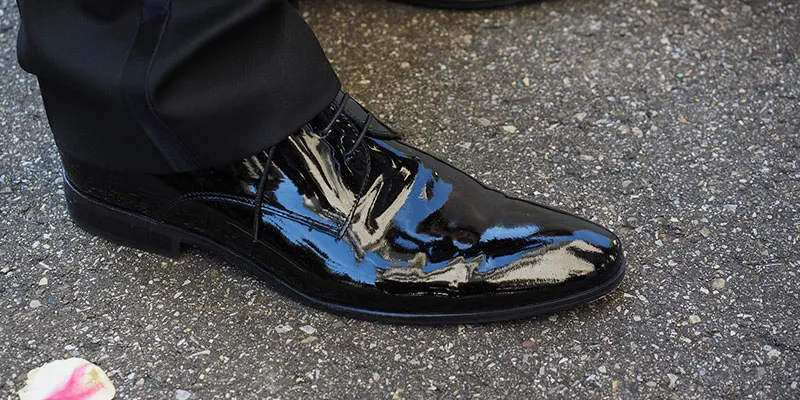Prep big or go home: 30 tips to ensure a successful job interview
If anyone tells you that interviews aren’t nerve-wracking, they’re lying through their teeth. Even the people holding the interview were once interviewed, and they’d be the first to sympathise with you for what they’re putting you through.
An interview is a doorway to a world of new possibilities. So in short, you can’t escape it. What you can do, however, is to prepare the best you can for it, so that regardless of the outcome, you know you went in there and gave it your best shot.
As William Shatner put it, “I sometimes find that in interviews you learn more about yourself than the person learned about you.”
Be it to impress the socks off the person across the table or even yourself for that matter, here are a few tips to prepare well for that interview you’re possibly palpitating for right now:
Have five copies of your resume
This is a must. I have made the mistake of walking into an interview conducted by three hiring managers, with a single copy of my resume. Needless to say, I was faced with raised eyebrows for not being more ‘prepared’ for the interview and had to shift restlessly in my seat as I watched them grow increasingly frustrated whilst shuffling the single piece of paper among themselves to ask their respective questions. I didn’t get a call back from the company and I didn’t expect to. But to save yourselves a lot of stress and nail-biting, definitely remember to carry at least five copies of your resume with you for any interview.
Plan your outfit

This may seem like a no-brainer, but you’d be surprised at how many people stroll into interviews in a casual shirt, jeans, and sneakers to keep with the ‘changing norms’ of work culture, especially in the startup ecosystem. However, the truth is that unless you are Mark Zuckerberg and have created your own billion-dollar enterprise, most companies still abide by the traditional system of formal wear (at least for their interview processes) and, superficially or not, form judgements about you based on the same. So don those collared shirts, ironed trousers, and pencil skirts, if only for that one day.
Don’t leave a crease

You may be sporting an outfit you spent half your savings on, but you can still lose out to the competition if you didn’t bother presenting it right. Cumbersome as it may be, make sure that your shoes are polished and shined, your shirt is ironed and crisp, and there isn’t a semblance of a crease in your skirt or trousers. Remember, sometimes first impressions are indeed last impressions.
Prepare a reference list
Eight out of 10 times, interviewers will ask you for the names of individuals they can reach out to in order to confirm what you have listed in your resume. For this, be sure to prepare a list of strong references of individuals you have worked or studied under, who you know will be willing to offer the same. At the same time, give them a heads-up to look out for a message or call from your recruiter to verify what they have on paper in front of them.
‘Tell us a bit about yourself’
This is a question that is almost a sure-shot in every interview you will ever attend. While it may be sound like the simplest question, it’s possibly the most challenging to answer in the span of a few seconds. During my first interview, I remember wondering how to condense 22 years of my life into three or four short sentences. The trick is to prepare a draft response beforehand. Pen down your main points, practise it thoroughly and time it, and then memorise it for every interview you attend in the future.
Prepare a list of questions for them
Towards the conclusion of an interview, most interviewers ask you whether you have any questions for him, her, or the company at large. While you may think shying away from this appears more respectful, the truth is that they are assessing your ability to question authority appropriately during this practice. So don’t hold back, list down a few questions that you wish to ask.
Do your homework
This is another must factor when it comes to preparing for any interview. When you walk into the room, the interviewer expects you to have done your research on the company and the post you have been called for. Chances are that they will ask you questions about it and expect to be questioned in return.
Do your research about the people
In most cases, the HR person who responds to your application will let you know who will interview you. When they do, you should find out all you can about the person from their Twitter and LinkedIn profiles, and maybe even send them a pre-interview mail expressing your enthusiasm for being called in for a possible position in the company they work for. Even if the interviewer’s identity isn’t disclosed to you, you should still do your research on the senior managers and individuals related to your branch in the company, again so you can prove that you haven’t walked into the room clueless.
Check out Glassdoor
Glassdoor is a site which contains information and reviews on most companies, provided by the company itself, its employees, and other applicants. These will help you form an idea of the company and the job, and thus help you prepare questions and responses accordingly.
Get an idea about the interview format
When you’re a fresher, it’s easy to get access to an interview-format, considering that people from your class may have attended it already. For others, the internet is a treasure trove of interview samples and advice, which in most cases will help you prepare for the kind of questions that will be thrown across the desk your way.
Prepare a short summary of your work experience
Your interviewer may try to put you at ease and refer to the interview as a ‘conversation’, but that doesn’t give you the green signal to ramble on through the day. So when you are asked about your prior work experience, make an effort to keep your response short, direct, and relevant. Skip out the additional details and only provide them if asked further about the same.
List out examples for your work experience
While it is imperative to present a general overview of the work you have done in your life thus far, it is equally important to be more specific about the relevant details. The best way to give your interviewer a glimpse of your burgeoning potential is to list out a few specific, interesting, and positive examples of your previous work experience, which helps in making it appear more credible.
List out two key strengths
Interviewers often judge a candidate on the basis of what they believe of themselves. For instance, a standard question they ask is, ‘What according to you are your greatest strengths, which you believe will make you an asset to the company?’ Instead of worrying about coming across as too arrogant, toughen up and give a confident and honest response.
List out two key weaknesses
For similar reasons, they will also hound you to declare your weaknesses. This, too, you need to take in your stride and answer confidently, because it shows them that you are honest and sincere in accepting your flaws, and confessing them at this point only portrays your will to learn and improve.
Jot down bullet points

As mentioned earlier, you need to make a conscious effort to stay focussed. You have to keep in mind that you aren’t the only one being interviewed for this post and should thus ensure that you hold the interviewer’s attention for the little time you have to promote yourself for the same. To this end, you should jot down a few relevant and interesting bullet-points on the main factors: life, job, five-year plan, salary etc. that you are sure to be asked, and stick to them during the course of the interview.
Give them statistics to back up your claim
Being specific about details related to your work experience will always help win you the golden ticket. To this end, you should try giving them numbers to back up what you have written in your resume. For example, people working in sales could say: “I made a deal as high as XX for my previous company, winning them an overall growth rate of YY.”
‘How will you add to the company?’
This is another frequenter at interviews. The answer to how you will prove to be an asset to the company is one you have got to prepare from beforehand. Steer away from the typical ‘I’m a hard-worker and passionate about the subject.’ Everyone knows that, it’s assumed that’s why you’re here. You need to offer them with a fresh reason on how bringing you on board will help the company explore a whole range of innovative ideas and solutions.
Be mindful of body language

From the way you sit on the chair to the number of times you wring your hands or touch your hair, every aspect of your body language gives you away. When you’re nervous, it shows more on your person than through what you may be saying at the time. So make a conscious effort to hold your head high, stop the trembling of your fingers, and sit comfortably but towards the edge of your chair. Maintain eye-contact and keep your arm movements to the minimal. And try not touching your face or hair too many times during the interview.
Hold mock interviews

The best way to prepare for an interview is to act it out with a family member or friend, preferably someone who has an idea about the field you’re applying to. Like everything else, a mock trial of a situation will always help you for when you’re actually made to take the seat in the spotlight.
Prepare a go-to phrase for stalling
There will be times through the interview when you will require a few seconds to recollect and structure your thoughts. Instead of resorting to the standard ‘ummm’ or ‘hmm’, you should come up with a go-to phrase to avoid a break or lull in the conversation. Things like ‘That’s a great question. I think I would have to say…’ or ‘Well there are several answers to that question, but I think…’ work well in these cases.
Keep copies of important documents handy
Along with your resume, it is imperative that you have a folder containing other important and relevant documents, on you when you walk in for an interview. For instance, digital media writers should carry print-outs of their published articles, sales and marketers should carry a proof of their highest sales, and so on. Whatever it may be, it can always come in handy to provide a visual representation of what you are saying.
Reach at least half an hour early
If you live in a city as stocked with traffic as Bengaluru or Mumbai, you probably understand the concept of back-calculation in order to figure out how early you should leave for a place. Nothing looks shoddier than arriving late for an interview, so make sure that you plan a route which can help you reach at least half an hour before the allotted time.
Eat and sleep

I cannot stress enough on the importance of eating well and sleeping for enough hours the night before a big interview. You need to be at your active best when you’re sitting in that chair, and it won’t help to be caught yawning or having your stomach rumble in the middle of a conversation.
Handshake
There is a lot that can be assessed about a person based on their handshake. As countless tutorials will tell you, you need to align your thumb and four fingers in a way that put just the right amount of pressure on the other person’s hand and keep it equidistance from it, without putting your thumb on top of or under their thumbs, which showcase dominance and subjugation respectively.
Keep a clear and focused head
Crisis has a way of lurking in the corner and creeping up on you when you least expect it. It could happen in the form of a stolen wallet, a missed train, or a fight with your partner on the day of your interview. Whatever it is, train your brain to deal with it after your interview and spend the time before you walk into the office concentrating on maintaining a clear and focused mind.
Look into a mirror
Look into a mirror and give yourself an introduction. If you find yourself looking confident and saying all the right things, you’re on the right track. However, if you can’t maintain eye-contact with your reflection and begin to fumble through your words, force yourself to practice some more and do it again. This will help build your confidence for the next day.
Keep your notes short and simple
The trick to keeping your responses short, direct, and interesting is by keeping your notes short, direct, and interesting. While we certainly aren’t encouraging you to memorise a speech for your interview, it is definitely prudent to have notes you can glance through minutes before the interview, so you can remember what to touch upon once you’re inside.
Know your resume inside-out
You have to keep in mind that your interviewer is assuming that everything you write in your resume is factually correct. To test the same idea, they can ask you about anything that you have listed in it, including that two month internship you did when you were in college. So be well-versed in everything you say in your resume so you can answer any question relating to the same.
Prepare to quote a range for salary
In most cases, you will be asked what you are expecting as a salary for the post you are being interviewed for. Do not shy away from the topic of money, even if makes you uncomfortable. You need to quote a salary you think will suffice the job description to this post, so take out enough time to speculate over all the odds to come up with a figure that works best for you.
Keep calm
And finally, the cardinal rule of preparing for an interview is to be calm. Nothing can harm your chances at being picked for the position than an air of vulnerability and nervousness you may carry into an interview. So to be taken seriously and to win the post, make sure you are calm and collected when you walk into that office, and give the best interview of your life!
For all those with interviews marked down their calendars in the months to come: keep these 30 tips in mind for when you begin to prepare to win at it. May the force be with you.







